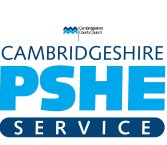To nurture the skills of resilience is key to providing young people with the ability to cope with stress, adversity, failure and challenges. Resilience is evident when young people have a greater ability to “bounce back” when faced with difficulties and achieve positive outcomes.
Resilience equips an individual to resist the temptation of advertising and the media and instead value the importance of working towards a goal, saving for a sought-after item and then appreciating its worth.
Helping children to understand planning and using money from an early age will help them manage it better when adult. Financial capability is an essential skill for life, and a lack of it causes stress and anxiety; in 2018, 22% of adults cited debt as a significant stressor (Mental Health Foundation, 2018). It includes, knowledge, behaviours, attitudes, motivations and the ability to manage money on a day to day basis. Children who have been taught about money at primary school are better able to defer gratification and save up for things they want than children who have not, according to a new study examining the effectiveness of financial education in schools (Substance 2018).
- After receiving some lessons in money awareness and management, this research found that:
- 91% of children could defer gratification, a 68% increase on those that previously would not.
- 70% of pupils will actively save for something they want.
- 55% of children that couldn’t previously understand terms, such as ‘habit’ or ‘budget’, now did.
- 87% of teachers said their pupils understood that financial decisions had consequences.
- 91% of teachers said children appreciated that there were ‘costs of living’.
National guidance does not currently identify economic wellbeing as mandatory and as such proposed learning outcomes are not included in the legislation.
- However, the PSHE association suggests that pupils know:
- About where money comes from and the part in plays in people’s lives.
- How personal financial choices can affect them and others.
- How to manage pressure from peers, advertising and other media on economic decisions.
- How to assess and manage positive and negative risk in relation to economic decisions, education and work.
- How to develop key work-related skills such as communication, team working and leadership skills.
- About the economic and business environment.
- About different types of work, including employment, self-employment and voluntary work
- That everyone has a career which is their pathway through life, education and work.
- About rights and responsibilities as consumers.
- About student finance and budgeting on a salary, assessing genuine ‘affordability’ and ‘value for money’.
PSHE Association Planning PSHE education (pshe-association.org.uk).
NatWest offers a wide variety of free lesson plans for students aged between 5 and 18; themes include money and wellbeing, everyday numeracy to critical consumers, budgeting and enterprise. It also offers specific lessons for SEND students.
https://natwest.mymoneysense.com/teachers/
Local Support

Cambridgeshire Personal, Social and Health Education (PSHE) Service
Cambridgeshire Personal, Social and Health Education (PSHE) Service The Cambridgeshire PSHE Service provides guidance, consultancy, training and resources to support and enhance the health and wellbeing of children and young people and their learning. This includes the curriculum for PSHE and Citizenship: its content, approaches to teaching and learning and monitoring and assessment. We also
Read More About Cambridgeshire Personal, Social and Health Education (PSHE) ServiceResources
Documents
Key Stage 1
Key Stage 2
Key Stage 3
Key Stage 4
- HSBC Money Management Lesson Borrowing KS4 KS5
- HSBC Money Management Lesson Living Costs KS4 KS5
- HSBC Money Management Lesson Spend or Save KS4 KS5
- Santander Money Lessons KS4
- Santander Teacher Guide
- Your Money Matters Textbook
Teacher Guidance
External Links
- AQA Citizenship Resources
- Bank of England Education Resources
- Barclays – Life Skills
- HSBC Education Resources
- Just Finance Foundation
- Make Money Makes Sense
- Money Heroes
- MyBnk
- MyBnk E-Learning
- National Schools Partnerships
- NatWest – Money Sense
- The Mix Essential Support for Under25s
- Young Enterprise
- Young Enterprise – Young Money
- Young Enterprise – Your Money Matters
- Young Enterprise Money Management lesson resources



